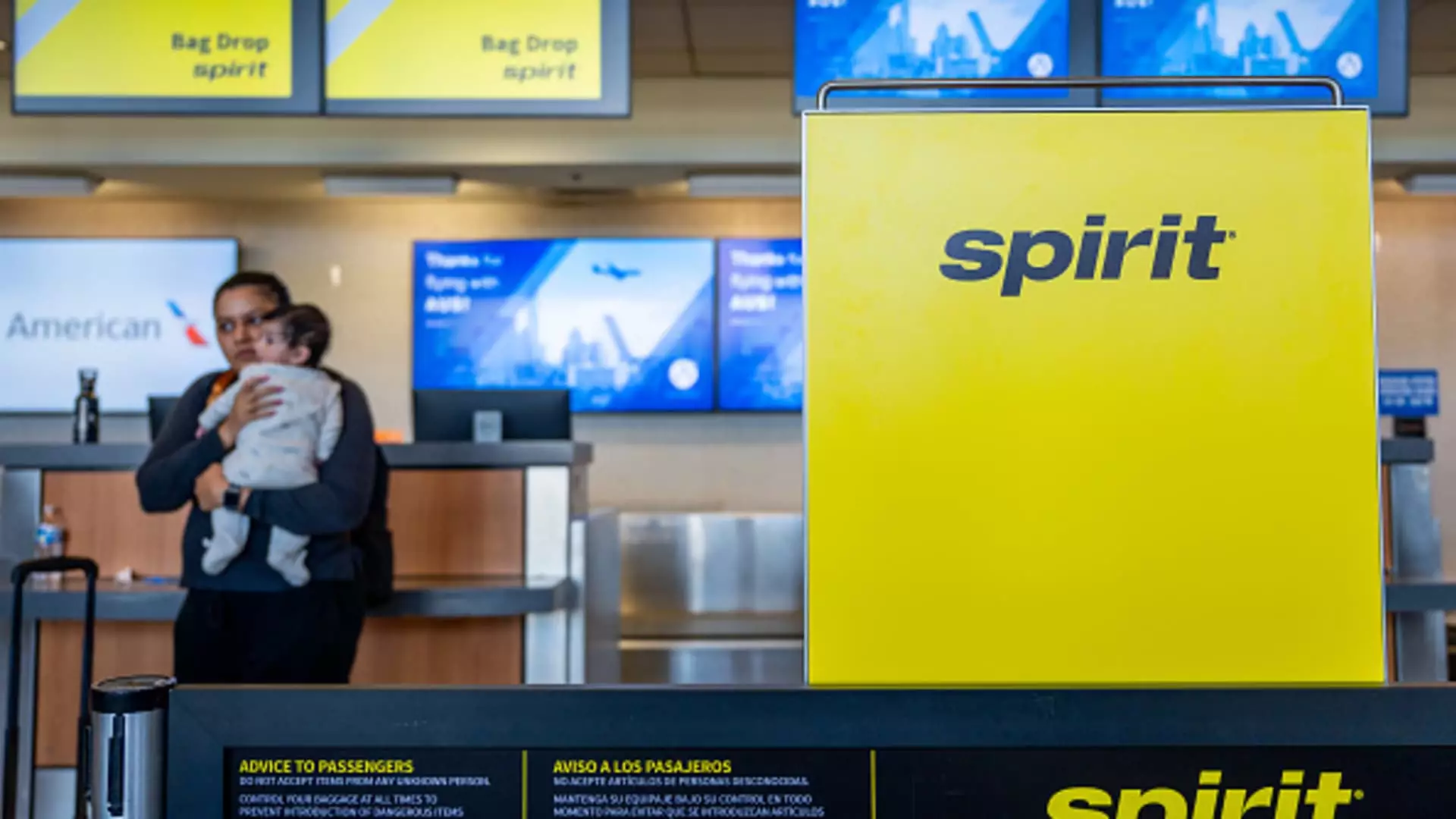In a significant development for the airline industry, Spirit Airlines has initiated Chapter 11 bankruptcy proceedings, marking the first major passenger carrier in the United States to do so in over a decade. This move comes at a time when the airline sector is still grappling with the aftermath of the COVID-19 pandemic, which dramatically altered travel behaviors and financial stability. However, contrary to what some may believe, Spirit Airlines’ filing does not signify the end of its operations. Instead, it is a strategic maneuver aimed at restructuring its financial obligations while continuing to serve the skies.
CEO Ted Christie has taken efforts to calm passenger fears, assuring them that their flights, loyalty points, and credits remain safe during this transitional phase. This reassured framing is critical, as customer trust and engagement are essential for any airline’s viability, especially one that markets itself as a budget-friendly alternative.
Spirit Airlines has been in a difficult financial position since 2019, but the situation took a turn for the worse amid the pandemic. Rising operational costs, a series of engine recalls impacting several Airbus jets, and a failed merger with JetBlue have piled pressure on the airline’s finances. Consequently, Spirit was faced with the impending deadline to renegotiate approximately $1.1 billion in upcoming debt payments. The urgency of addressing these financial challenges became apparent to both industry experts and the airline’s management.
The prearranged deal that Spirit has struck with its bondholders is designed to streamline the bankruptcy process and provide a roadmap for the airline’s recovery. Spirit aims to exit Chapter 11 by the first quarter of 2025, although the details of this recovery strategy remain largely undisclosed. Bankruptcy can serve as a double-edged sword—it offers protection from creditors but can also limit operational flexibility as the airline restructures its core business.
Travelers are understandably concerned about how this situation may disrupt their travel plans. While Spirit Airlines has committed to maintaining its schedule as much as possible, especially during the lucrative holiday season, skepticism remains about potential cutbacks in the future. Industry commentators, like Henry Harteveldt of the Atmosphere Research Group, have pointed out the importance of staying informed about any alterations to schedules or routes, as changes could directly impact consumers.
Importantly, customers should be aware of their rights under U.S. law. If Spirit Airlines cancels flights, customers are entitled to refunds unless expressly stated otherwise. However, the Department of Transportation (DOT) has noted that bankruptcy filings could complicate the refund process, potentially leading to delays or even refusals as the airline works to stabilize its finances.
To safeguard against cancellations or significant changes, experts recommend using credit cards for flight purchases, as they offer better consumer protection. This precaution may prove vital in a landscape where travelers could find themselves needing to book alternate flights on short notice, particularly as demand surges during peak travel times.
Looking ahead, the future of Spirit Airlines remains uncertain yet hopeful. The airline’s exit strategy from bankruptcy could transform it into a leaner and more efficient operation, tailored to meet the evolving demands of the flying public. Additionally, the competitive landscape might shift if other airlines capitalize on Spirit’s restructuring, potentially acquiring assets or routes that Spirit could no longer afford to maintain.
The previous merger discussions with Frontier Airlines, especially in light of the failed JetBlue acquisition, could resurface as industry dynamics change. Reconfiguring partnerships in the airline sector will be key, particularly as the market recovers and demand increases. With the incoming political climate possibly being more favorable to airline deals, Spirit’s leadership may find new opportunities for growth and collaboration.
Spirit Airlines’ Chapter 11 bankruptcy filing opens a complex chapter in its operational saga, one fraught with challenges yet brimming with potential for transformation. While consumers are left to navigate uncertainties during this restructuring phase, proactive measures such as using credit for purchases and understanding consumer rights will be paramount. Time will tell how Spirit Airlines leverages this opportunity to redefine its future in an ever-fluctuating industry, but one thing remains clear: adaptability and consumer trust will be essential in steering the airline towards recovery and growth.


Leave a Reply